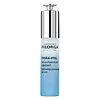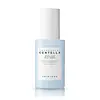What's inside
What's inside
 Key Ingredients
Key Ingredients

 Benefits
Benefits

 Concerns
Concerns

No concerns
 Ingredients Side-by-side
Ingredients Side-by-side

Water
Skin ConditioningGlycereth-26
Humectant1,2-Hexanediol
Skin ConditioningPPG-26-Buteth-26
Skin ConditioningPEG-40 Hydrogenated Castor Oil
EmulsifyingSucrose Palmitate
EmollientHydrolyzed Sodium Hyaluronate
Skin ConditioningPropanediol
SolventParfum
MaskingSodium Polyacrylate Starch
AbsorbentGlyceryl Linoleate
EmollientTocopheryl Acetate
AntioxidantSodium Hyaluronate
HumectantSodium Benzoate
MaskingChondrus Crispus Extract
Skin ConditioningCitric Acid
BufferingDisodium EDTA
Xanthan Gum
EmulsifyingO-Cymen-5-Ol
AntimicrobialBenzyl Alcohol
PerfumingAcrylates/C10-30 Alkyl Acrylate Crosspolymer
Emulsion StabilisingAdenosine
Skin ConditioningLithothamnion Calcareum Extract
Skin ConditioningPentylene Glycol
Skin ConditioningSodium Hyaluronate Crosspolymer
HumectantPotassium Sorbate
PreservativePrunus Amygdalus Dulcis Oil
Skin ConditioningSodium Chloride
MaskingDehydroacetic Acid
PreservativeSophora Japonica Flower Extract
Skin ProtectingGlucose
HumectantPhenoxyethanol
PreservativePotassium Chloride
Calcium Chloride
AstringentMagnesium Sulfate
Glutamine
Skin ConditioningSodium Phosphate
BufferingAscorbic Acid
AntioxidantSodium Acetate
BufferingTocopherol
AntioxidantLysine Hcl
Skin ConditioningArginine Hcl
Skin ConditioningAlanine
MaskingHistidine Hcl
Skin ConditioningValine
MaskingLeucine
Skin ConditioningThreonine
Isoleucine
Skin ConditioningTryptophan
MaskingPhenylalanine
MaskingTyrosine
MaskingGlycine
BufferingPolysorbate 80
EmulsifyingSerine
MaskingCystine
MaskingCyanocobalamin
Skin ConditioningGlutathione
Asparagine
MaskingAspartic Acid
MaskingOrnithine Hcl
Skin ConditioningGlutamic Acid
HumectantNicotinamide Adenine Dinucleotide
Skin ConditioningProline
Skin ConditioningMethionine
Skin ConditioningTaurine
BufferingHydroxyproline
Skin ConditioningGlucosamine Hcl
Coenzyme A
Skin ConditioningSodium Glucuronate
HumectantThiamine Diphosphate
Skin ConditioningRetinyl Acetate
Skin ConditioningInositol
HumectantNiacin
SmoothingNiacinamide
SmoothingPyridoxine Hcl
Skin ConditioningBiotin
AntiseborrhoeicCalcium Pantothenate
Riboflavin
Cosmetic ColorantSodium Tocopheryl Phosphate
AntioxidantThiamine Hcl
MaskingFolic Acid
Skin ConditioningWater, Glycereth-26, 1,2-Hexanediol, PPG-26-Buteth-26, PEG-40 Hydrogenated Castor Oil, Sucrose Palmitate, Hydrolyzed Sodium Hyaluronate, Propanediol, Parfum, Sodium Polyacrylate Starch, Glyceryl Linoleate, Tocopheryl Acetate, Sodium Hyaluronate, Sodium Benzoate, Chondrus Crispus Extract, Citric Acid, Disodium EDTA, Xanthan Gum, O-Cymen-5-Ol, Benzyl Alcohol, Acrylates/C10-30 Alkyl Acrylate Crosspolymer, Adenosine, Lithothamnion Calcareum Extract, Pentylene Glycol, Sodium Hyaluronate Crosspolymer, Potassium Sorbate, Prunus Amygdalus Dulcis Oil, Sodium Chloride, Dehydroacetic Acid, Sophora Japonica Flower Extract, Glucose, Phenoxyethanol, Potassium Chloride, Calcium Chloride, Magnesium Sulfate, Glutamine, Sodium Phosphate, Ascorbic Acid, Sodium Acetate, Tocopherol, Lysine Hcl, Arginine Hcl, Alanine, Histidine Hcl, Valine, Leucine, Threonine, Isoleucine, Tryptophan, Phenylalanine, Tyrosine, Glycine, Polysorbate 80, Serine, Cystine, Cyanocobalamin, Glutathione, Asparagine, Aspartic Acid, Ornithine Hcl, Glutamic Acid, Nicotinamide Adenine Dinucleotide, Proline, Methionine, Taurine, Hydroxyproline, Glucosamine Hcl, Coenzyme A, Sodium Glucuronate, Thiamine Diphosphate, Retinyl Acetate, Inositol, Niacin, Niacinamide, Pyridoxine Hcl, Biotin, Calcium Pantothenate, Riboflavin, Sodium Tocopheryl Phosphate, Thiamine Hcl, Folic Acid
Water
Skin ConditioningCentella Asiatica Leaf Water 38%
Skin ConditioningButylene Glycol
Humectant1,2-Hexanediol
Skin ConditioningNiacinamide
SmoothingGlycerin
HumectantPantolactone
HumectantHibiscus Esculentus Fruit Extract
Skin ConditioningSodium Hyaluronate
HumectantHydrolyzed Hyaluronic Acid
HumectantHyaluronic Acid
HumectantMethylpropanediol
SolventPanthenol
Skin ConditioningCetearyl Olivate
Carbomer
Emulsion StabilisingArginine
MaskingSorbitan Olivate
EmulsifyingCaprylic/Capric Triglyceride
MaskingPyrus Communis Fruit Extract
Skin ConditioningPentylene Glycol
Skin ConditioningAdenosine
Skin ConditioningPolyglutamic Acid
Skin ConditioningRosa Damascena Flower Water
MaskingArtemisia Princeps Leaf Extract
Skin ConditioningCucumis Melo Fruit Extract
Skin ConditioningIris Florentina Root Extract
MaskingEthylhexylglycerin
Skin ConditioningHedera Helix Leaf/Stem Extract
AntimicrobialSodium Phytate
Xanthan Gum
EmulsifyingMaltodextrin
AbsorbentHydrolyzed Gardenia Florida Extract
AntioxidantHydrogenated Lecithin
EmulsifyingCeramide NP
Skin ConditioningSodium Hyaluronate Crosspolymer
HumectantHydrolyzed Sodium Hyaluronate
Skin ConditioningWater, Centella Asiatica Leaf Water 38%, Butylene Glycol, 1,2-Hexanediol, Niacinamide, Glycerin, Pantolactone, Hibiscus Esculentus Fruit Extract, Sodium Hyaluronate, Hydrolyzed Hyaluronic Acid, Hyaluronic Acid, Methylpropanediol, Panthenol, Cetearyl Olivate, Carbomer, Arginine, Sorbitan Olivate, Caprylic/Capric Triglyceride, Pyrus Communis Fruit Extract, Pentylene Glycol, Adenosine, Polyglutamic Acid, Rosa Damascena Flower Water, Artemisia Princeps Leaf Extract, Cucumis Melo Fruit Extract, Iris Florentina Root Extract, Ethylhexylglycerin, Hedera Helix Leaf/Stem Extract, Sodium Phytate, Xanthan Gum, Maltodextrin, Hydrolyzed Gardenia Florida Extract, Hydrogenated Lecithin, Ceramide NP, Sodium Hyaluronate Crosspolymer, Hydrolyzed Sodium Hyaluronate
 Reviews
Reviews

Ingredients Explained
These ingredients are found in both products.
Ingredients higher up in an ingredient list are typically present in a larger amount.
1,2-Hexanediol is a synthetic liquid and another multi-functional powerhouse.
It is a:
- Humectant, drawing moisture into the skin
- Emollient, helping to soften skin
- Solvent, dispersing and stabilizing formulas
- Preservative booster, enhancing the antimicrobial activity of other preservatives
Adenosine is in every living organism. It is one of four components in nucleic acids that helps store our DNA.
Adenosine has many benefits when used. These benefits include hydrating the skin, smoothing skin, and reducing wrinkles. Once applied, adenosine increases collagen production. It also helps with improving firmness and tissue repair.
Studies have found adenosine may also help with wound healing.
In skincare products, Adenosine is usually derived from yeast.
Learn more about AdenosineThis ingredient is created by putting sodium hyaluronate through hydrolysis.
You might know this as 'mini' or 'ultra low-molecular weight' hyaluronic acid. The small molecule size means it is able to travel deeper in the skin.
According to studies, low molecular-weight hyaluronic acid can:
One study from 2011 found ultra-low weight HA to show pro-inflammatory properties. Another study from 2022 found it to downregulate UV-B induced inflammation.
Hydrolysis is a process of changing a molecule using water or enzymes.
This ingredient is water-soluble.
Learn more about Hydrolyzed Sodium HyaluronateNiacinamide is a multitasking form of vitamin B3 that strengthens the skin barrier, reduces pores and dark spots, regulates oil, and improves signs of aging.
And the best part? It's gentle and well-tolerated by most skin types, including sensitive and reactive skin.
You might have heard of "niacin flush", or the reddening of skin that causes itchiness. Niacinamide has not been found to cause this.
In very rare cases, some individuals may not be able to tolerate niacinamide at all or experience an allergic reaction to it.
If you are experiencing flaking, irritation, and dryness with this ingredient, be sure to double check all your products as this ingredient can be found in all categories of skincare.
When incorporating niacinamide into your routine, look out for concentration amounts. Typically, 5% niacinamide provides benefits such as fading dark spots. However, if you have sensitive skin, it is better to begin with a smaller concentration.
When you apply niacinamide to your skin, your body converts it into nicotinamide adenine dinucleotide (NAD). NAD is an essential coenzyme that is already found in your cells as "fuel" and powers countless biological processes.
In your skin, NAD helps repair cell damage, produce new healthy cells, support collagen production, strengthen the skin barrier, and fight environmental stressors (like UV and pollution).
Our natural NAD levels start to decline with age, leading to slower skin repair, visible aging, and a weaker skin barrier. By providing your skin niacinamide, you're recharging your skin's NAD levels. This leads to stronger, healthier, and younger looking skin.
Another name for vitamin B3 is nicotinamide. This vitamin is water-soluble and our bodies don't store it. We obtain Vitamin B3 from either food or skincare. Meat, fish, wheat, yeast, and leafy greens contain vitamin B3.
The type of niacinamide used in skincare is synthetically created.
Learn more about NiacinamidePentylene glycol is typically used within a product to thicken it. It also adds a smooth, soft, and moisturizing feel to the product. It is naturally found in plants such as sugar beets.
The hydrophilic trait of Pentylene Glycol makes it a humectant. As a humectant, Pentylene Glycol helps draw moisture from the air to your skin. This can help keep your skin hydrated.
This property also makes Pentylene Glycol a great texture enhancer. It can also help thicken or stabilize a product.
Pentylene Glycol also acts as a mild preservative and helps to keep a product microbe-free.
Some people may experience mild eye and skin irritation from Pentylene Glycol. We always recommend speaking with a professional about using this ingredient in your routine.
Pentylene Glycol has a low molecular weight and is part of the 1,2-glycol family.
Learn more about Pentylene GlycolSodium Hyaluronate is hyaluronic acid's salt form. It is commonly derived from the sodium salt of hyaluronic acid.
Like hyaluronic acid, it is great at holding water and acts as a humectant. This makes it a great skin hydrating ingredient.
Sodium Hyaluronate is naturally occurring in our bodies and is mostly found in eye fluid and joints.
These are some other common types of Hyaluronic Acid:
Learn more about Sodium HyaluronateSodium Hyaluronate Crosspolymer is a type of hyaluronic acid. In fact, it is modified version of hyaluronic acid.
The structure of Sodium Hyaluronate Crosspolymer allows it to stay in the skin's top layer for a longer period of time. This allows for even more hydration and humectant action than hyaluronic acid.
These are some other common types of Hyaluronic Acid:
Learn more about Sodium Hyaluronate CrosspolymerWater. It's the most common cosmetic ingredient of all. You'll usually see it at the top of ingredient lists, meaning that it makes up the largest part of the product.
So why is it so popular? Water most often acts as a solvent - this means that it helps dissolve other ingredients into the formulation.
You'll also recognize water as that liquid we all need to stay alive. If you see this, drink a glass of water. Stay hydrated!
Learn more about WaterXanthan gum is used as a stabilizer and thickener within cosmetic products. It helps give products a sticky, thick feeling - preventing them from being too runny.
On the technical side of things, xanthan gum is a polysaccharide - a combination consisting of multiple sugar molecules bonded together.
Xanthan gum is a pretty common and great ingredient. It is a natural, non-toxic, non-irritating ingredient that is also commonly used in food products.
Learn more about Xanthan Gum